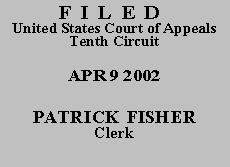

| LARRY D. HENRY, |
|
Petitioner Henry seeks a certificate of appealability (COA) in this court. He filed his application pro se. We therefore construe the petition liberally, Haines v. Kerner, 404 U.S. 519, 520-21 (1972). On the face of his pleadings in this court, petitioner alleges that he is appealing only the issue of whether he was denied a speedy and fair trial under the Sixth Amendment of the United States Constitution. Construing the petitions liberally, however, we review the issues that were before the district court and construe them to be included in the application for a certificate of appealability in this court.
Petitioner Henry was convicted of first degree murder, shooting with intent to kill, and discharging a firearm with intent to kill. These charges arose from a gang-related drive-by shooting which occurred when petitioner was sixteen years-old. He was sentenced to consecutive sentences of life imprisonment, twenty-five years and ten years respectively on these convictions. The convictions were affirmed on direct appeal. In his habeas petition in the district court, petitioner claimed a denial of due process because the state allegedly failed to comply with the notice provisions regarding warrants against juvenile offenders. He further claimed a denial of his right to a speedy trial and an error in the failure to grant a mistrial because of evidentiary submission by a witness on behalf of the state. The district court denied the petition brought pursuant to 28 U.S.C. § 2254 and denied COA.
To be entitled to a COA, Mr. Henry must make "a substantial showing of the denial of a constitutional right." 28 U.S.C. § 2253(c)(2). He can make this showing by establishing that "reasonable jurists could debate whether (or, for that matter, agree that) the petition should have been resolved in a different manner or that the issues presented were adequate to deserve encouragement to proceed further." Slack v. McDaniel, 529 U.S. 473, 484 (2000) (quotation omitted).
We may grant habeas relief only if the state court entered a judgment that
(1) resulted in a decision that was contrary to, or involved an unreasonable application of, clearly established Federal law, as determined by the Supreme Court of the United States; or
(2) resulted in a decision that was based on an unreasonable determination of the facts in light of the evidence presented in the State court proceeding.
28 U.S.C. § 2254(d).
After reviewing the record and all of the filings in this case, this court is convinced that no reasonable jurist would debate whether the petition should have been resolved in a different manner. We decline to grant a COA for substantially the reasons given in the report and recommendation of the magistrate judge and the order of the district court. The motion to proceed in forma pauperis is granted. The application for a certificate of appealability is DENIED.
ENTERED FOR THE COURT,
Deanell Reece Tacha
Chief Circuit Judge
*.This order and judgment is not binding precedent, except under the doctrines of law of the case, res judicata, and collateral estoppel. This court generally disfavors the citation of orders and judgments; nevertheless, an order and judgment may be cited under the terms and conditions of 10th Cir. R. 36.3.